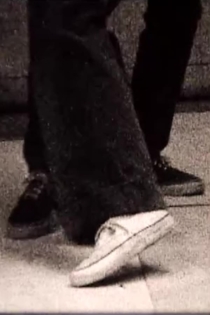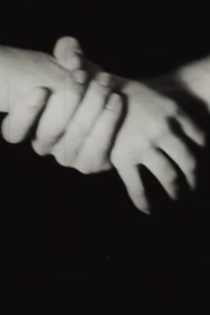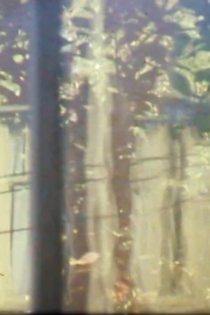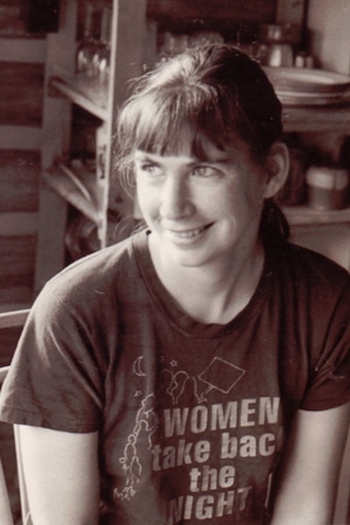
JoAnn Elam
1949 - 2009Not only did Elam's work focus on these themes but she also focused on everyday life in her films. While living in San Francisco,California, and Yellow Springs, Ohio, where she attended Antioch College, Elam had completed these everyday life documentary films. These films and her other films were produced on 16mm and 8mm films, but mainly 8mm.
Her films Rape and Everyday People have been subjects of great interest. Rape has been seen and applauded by many including authors of feminist film criticism journals and reviewers of the film. It has given women the power to speak up about experiences with rape and allowed them to be angry instead of keeping it all in. Everyday People has been on the art and film worlds’ interests because of its uncompleted state and the insight into the postal service, which she used to work for.
Description above from the Wikipedia article JoAnn Elam, licensed under CC-BY-SA, full list of contributors on Wikipedia.
Christmas Tree
JoAnn Elam
Filmed in extreme close-up, the lit-up pine needles of a Christmas tree are abstracted into forms of line and contrast. “Christmas Tree” then moves around the living room to focus on JoAnn Elam stringing popcorn, a playful dog, a tapestry on the wall, and a curly-haired man playing guitar.
Christmas Tree

Lie Back & Enjoy It
JoAnn Elam
Lie Back & Enjoy It is a dialectical film about the politics of representation. Its image track consists of technologically manipulated images of women, and some printed titles. Its soundtrack consists of a dialogue between a Man (a filmmaker) and a Woman (of whom he's going to make a film).
Lie Back & Enjoy It
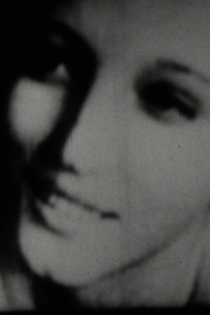
Going Places
JoAnn Elam
Joann Elam captures urban residents on the go in various seasons. The film begins in winter, as JoAnn captures sleepy neighborhood scenes from her snowy Logan Square windowsill. This is followed by manipulated summer scenes of a fast paced marathon. Through light flares and in-camera editing, marathon runners deconstruct into colorful forms.
Going Places
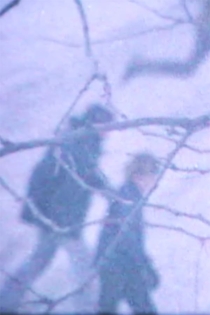
I Can Almost See It
JoAnn Elam
Shot from the inside of a house and through a window's curtains, one can sometimes distinguish the colorful flowers in the yard outside. But, as in much of her other film work, JoAnn Elam is apparently more interested in filming textures, light, and colors. Panning over the curtains at various speed, the camera captures their rhythm and the effect of the light on their fabric at close range, until it becomes difficult to identify the object turned pure light and movement.
I Can Almost See It

Chocolate Cake
JoAnn Elam
The film was made in response to an evening during which a number of male members of Chicago's experimental film scene gathered at JoAnn's house and proceeded to ignore both her and the chocolate cake she made for the occasion. The film consists of a series of shots documenting the making of a chocolate cake, followed by a shot of JoAnn's sandaled foot stepping in the middle of the cake. When JoAnn screened the film in homes or loft spaces in Chicago, she would always serve chocolate cake as an accompaniment. Date of production unknown (likely 1973).
Chocolate Cake
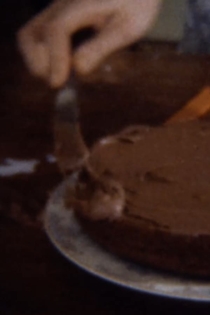
Other People's Children
JoAnn Elam
A series of home move style shots of a mother and her young child crawling outdoors. Scenes include a mother and toddler playing in a Chicago backyard, a young family boating in a small lake, toddlers playing & bathing outdoors, a young girl and her stuffed animal and a children's birthday party with a pi?ata. Exact date of production is unknown.
Other People's Children

Daytime Television
JoAnn Elam
Set to the Beatles 1965 song "You Like Me Too Much," Daytime Television consists of a series of close-up handheld pans of cleaning supply labels and packaging. Elam refuses to pull back and the abstracted visual effect is both dizzying, hypnotic, and full of rapidly flashing colors. The film looks at the feminist discourse of the "politics of housework," and of the anti-consumer discourse of the counterculture and left of the day.
Daytime Television

